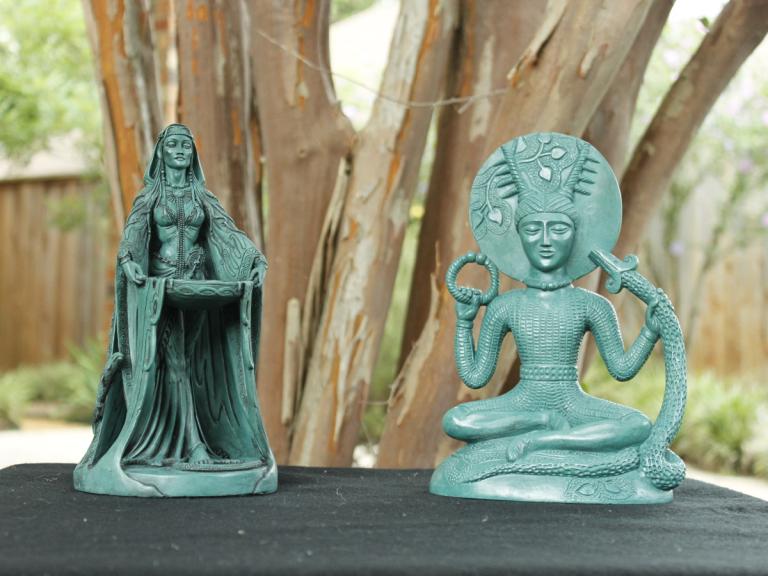 When things go well or turn out to be pleasant, we tend to want to do them again. Sometimes this works well, as when a first date turns into many dates and many dates turn into a lifetime partnership. Sometimes it doesn’t work so well. The second piece of cheesecake never tastes quite as good as the first, and a strong desire for cheesecake tends to have a negative affect on your waistline… and on your wallet.
When things go well or turn out to be pleasant, we tend to want to do them again. Sometimes this works well, as when a first date turns into many dates and many dates turn into a lifetime partnership. Sometimes it doesn’t work so well. The second piece of cheesecake never tastes quite as good as the first, and a strong desire for cheesecake tends to have a negative affect on your waistline… and on your wallet.
And some experiences are the proverbial “lightning in a bottle” – a fortuitous and unlikely combination of factors that simply can’t be repeated no matter how hard we try.
In the recap of our Egyptian Summer Solstice circle, I wondered if we should perform the daily temple ritual more than once a year:
The outcome of these rituals has been strong and tangible. I sometimes wonder what would happen if we devoted ourselves fully to these Gods and performed the daily temple ritual on a daily basis. There are polytheists who are doing just that, some with the Neteru and some with the deities of other traditions. Though there are daily elements to my spiritual practice, it does not reach this level of devotion.
Should it? That’s a very hard question that deserves more prayerful contemplation.
In a Facebook comment, Wytch Fawn asked:
Why do you only honor them once a year? It’s like the annual visit to grandma in the home. Seems more respectful to me, maybe keeping those connections going all the time. Otherwise, it’s just theater, for show… right?
I gave Fawn a short answer (the comparison to an annual visit to grandma is close; calling it theater isn’t) and former Patheos Pagan blogger Aine Llewellyn added another helpful comment, but I think it’s worthwhile to explore this in greater detail.
There are many Gods. I am formally pledged to two and I honor Them every day. There are five others I have an on-going relationship with – I honor Them on a frequent but irregular basis. There are perhaps another two dozen I would say I’m on good terms with – I work with and honor Them on an as-needed basis (my need or Theirs).
That leaves thousands of Gods with whom I have no meaningful relationship. When I find myself in Their temples or at the performance of Their rites, I do my best to render due honor to Them – to be a polite guest in Their presence. But such observances create no obligations, for me or for Them.
Most of Them aren’t jealous. I’m sure Yahweh isn’t the only jealous deity, but I haven’t encountered very many. Perhaps, like the Trickster deities, jealous deities realize I’d be a difficult follower and They call others instead. Regardless, my experience has been that so long as the Gods with whom I am close get what They want, They don’t much care what I do with or for other Gods.
To what extent do deities cooperate and coordinate Their efforts? This is a highly speculative question with no objective proof and only loose subjective evidence. While I am leery of anything that implies a Universal plan (“God’s Plan” is a monotheist cop-out) it seems likely that deities from the same pantheon or deities in charge of the same things in different places would have common interests and would at least occasionally work together. Sometimes by serving one deity we further the aims of several deities.
Devotion isn’t an all or nothing thing. If I spoke to my wife once a week, I wouldn’t be married for long. Our relationship and my commitment to her requires daily communication. But I have friends for whom once a week conversation is wonderful, and other friends with whom I remain close despite speaking to them every other month or so. We understand different human relationships require different levels of maintenance.
Likewise, different relationships with different Gods require different levels of devotion. Less intense devotion isn’t disrespectful – it’s entirely appropriate for less intense relationships.
They want what They want. For me, this is the bottom line – am I giving the Gods I work with the service They require? Am I doing what They asked me to do? If the Egyptian deities ask our group for a temple ritual once a year on the Summer Solstice, then that’s what we need to do… and it’s all we have to do.
When I interviewed Morpheus Ravenna, there was only one question she declined to answer: “are there specific things you do regularly in your role as Priest of the Morrigan?” Morpheus said “yes… and it’s really too big a question for this interview. [That’s] probably at least a chapter in the book.” If what the Morrigan requires from Morpheus requires a whole chapter in a book that may not leave much time for her to work with other deities. On the other hand, Morrigan has asked far less of me, meaning I have more time to work with additional Gods.
There is only so much time. This was the point Aine brought up in her Facebook comment: “I would hardly expect to worship every God I’ve ever given devotion to 24/7.” If I were to begin performing the Egyptian daily temple ritual every day, I would have little time left for Cernunnos and Danu, or for the other deities in my life. If I felt a strong calling to Kemeticism, perhaps I should do that. But as someone whose first calling is to Druidry and who has made oaths to Cernunnos and Danu, that doesn’t seem like a proper trade.
Beware shallow polytheism. While few Pagans are called to henotheism, there is a limit to how thinly we can spread ourselves and still adequately honor and serve any deity. That limit is different for every polytheist and I can’t begin to tell you the proper balance for you. My only suggestion is to make sure you’ve fully satisfied the deities that are already in your life before you take on any more.
So the answer to the question I asked last Sunday is “no” – at least for me, at least for now. We’ve been doing this for 11 years and we haven’t been pushed for more, so I imagine the Neteru are satisfied with their annual Summer Solstice ritual.
Some things are special largely because they are rare – more isn’t always better.














